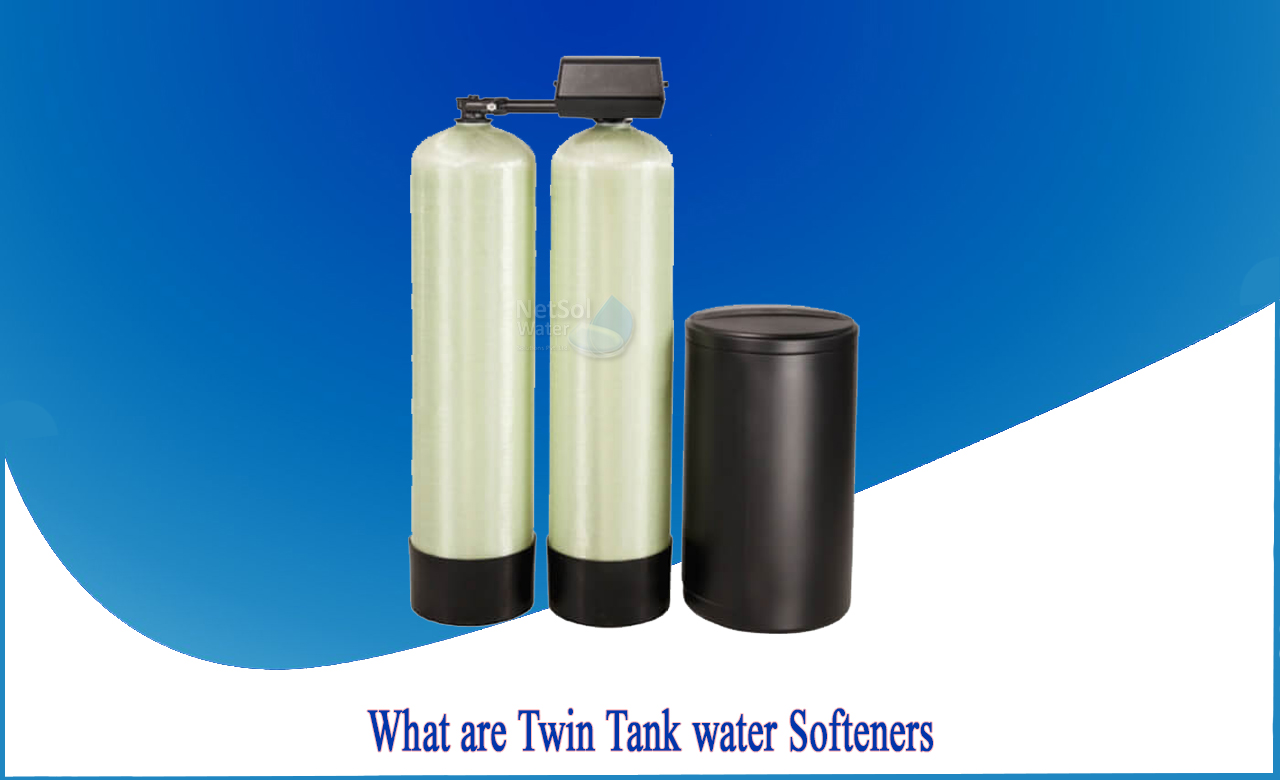Twin tank water softeners offer two cylinders that soften your water independently. The other tank takes over when one is being regenerated. Because they don't pause during the cleaning process, twin tank water softeners (also known as twin cylinder) provides softened water 24 hours a day, seven days a week.
How does a Twin tank water softener work?
After softening, a specific amount of water, all water softeners must renew. This is due to the fact that they have a resin bed inside their tank that requires sodium replenishment after a specific volume of water has been softened.Because the entire system shuts down to clean itself, a single tank softener can't deliver soft water while it's regenerating. A twin tank softener has two tanks, one of which regenerates while the other takes over. Because of this, twin tank softeners can soften water 24 hours a day, making them more efficient than single tank softeners.
Twin tank water softener_ what makes it better?
A twin tank softener, on the other hand, has none of these issues because it can regenerate while still in operation. It goes ahead and regenerates as soon as it has softened all of the water it can. It's not too early, and it's not too late. You don't risk ingesting hard water, and you don't waste time flushing salt and water down the drain.It's also worth mentioning that softened water's advantages aren't limited to the daytime.
Your home has water running through it at all times, and by ensuring that all water entering your home is softened properly, you can save money and enhance the quality of your appliances and pipes.
Three elements are evaluated while determining whether or not I require a twin tank softener:
1-Quality of Water
2-The Use of Water (Gallons per day)
3-Utilization (Household, Business, Factory, Restaurant)
Quality of w?ater: The number of liters of water that can be softened before "running out of soft water" and requiring to regenerate is directly proportional to the water quality. Total Compensated Hardness, which includes both hardness and iron, should be used to assess water quality.
Water de?mand: The size and structure of the water softener will be determined by the amount of water used and the quality of the water.
Application or utilization: A typical family on municipal water will be fine with hard water once a week from 2am to 3:30am. A processing business that demands soft water 24 hours a day, seven days a week will not tolerate hard water at any time.
Who Needs a twin tank in Water Softener?
Twin tank systems are commonly employed in commercial applications. Water and stable water quality are often more important to businesses at all times of the day.
For some households, however, the initial cost of adding an extra tank is justified by the benefits. A twin tank system, rather than a big single tank softener, may be the best alternative for larger households in areas with hard water.
The following are examples of typical twin tank water softener users:
1-Industry of Health Care
2-Industry of Food and Beverage
3-Education Sector
4-Hospitality and Hotel Industry
5-Families with a Lot of Children
To determine if a multiple tank water softening system is correct for you, speak with a professional water treatment provider at Netsol Water Solutions.
Netsol Water is Greater Noida-based leading water & wastewater treatment plant manufacturer. We are industry's most demanding company based on client review and work quality. We are known as best commercial RO plant manufacturers, industrial RO plant manufacturer, sewage treatment plant manufacturer, Water Softener Plant Manufacturers and effluent treatment plant manufacturers. Apart from this 24x7 customer support is our USP. Call on +91-9650608473, or write us at enquiry@netsolwater.com for any support, inquiry or product-purchase related query.



